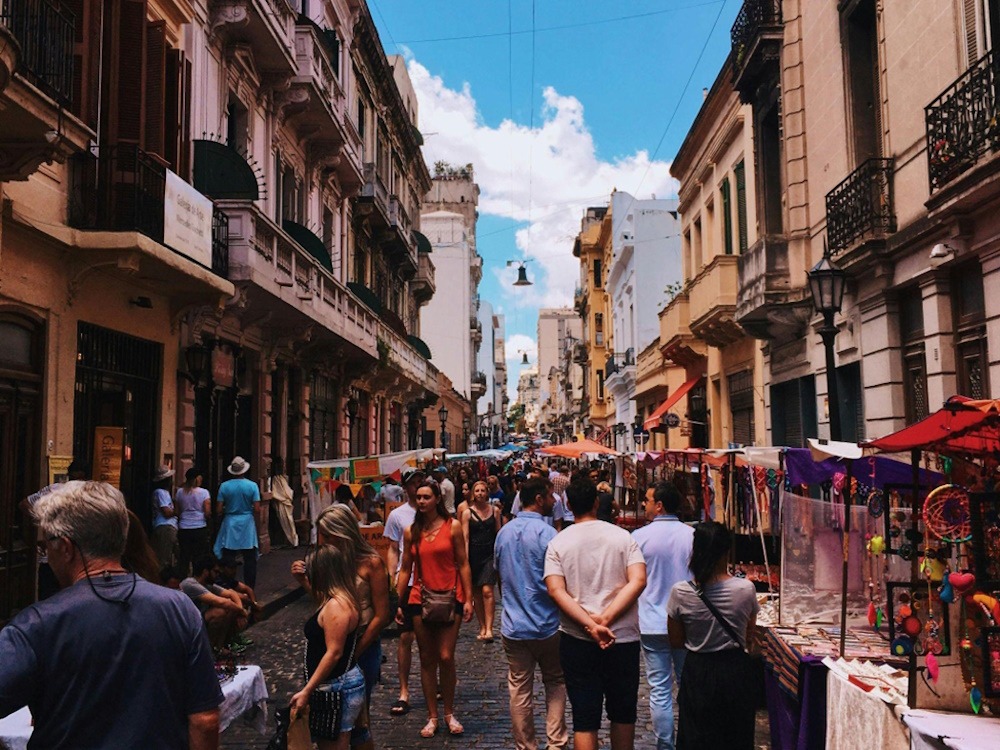Buenos Aires has officially moved crypto from cafés into city hall. With the launch of BA Cripto, residents can now pay everything from property taxes to parking fines in cryptocurrency. More than a financial upgrade, it signals Argentina’s capital’s intent to brand itself as Latin America’s first true crypto-friendly metropolis.
Buenos Aires introduces ‘BA Cripto’ program to modernize public payments
Buenos Aires just took a bold leap into the digital age. On August 19, 2025, the city kicked off an ambitious initiative called “BA Cripto”, a framework that lets residents and businesses use cryptocurrency for paying city taxes and public services. From property tax (ABL) and vehicle levies (Patentes) to commercial dues (Ingresos Brutos), even mundane items like driver’s licenses and parking fines can now be settled with a few taps on a compatible cryptocurrency wallet.
All of it flows through a QR-based system, snapping the city’s financial operations into line with the realities of a changing digital economy.
In that same spirit, crypto has already moved far beyond the trading desk and into more everyday arenas. One striking example is the growing popularity of gaming channels, captured in a curated list of leading Telegram casinos, where the same principles of speed, transparency, and trust that power city payments are reimagined as frictionless entertainment. These usages hint at how crypto, once labeled speculative, now quietly powers real interactions, whether you’re settling a tax or spinning a roulette wheel halfway around the world.
Regulatory measures designed to foster efficiency and attract investment
The BA Cripto initiative didn’t materialize in a vacuum, it’s the spearhead of a larger legislative rethink aimed at refining city systems and polishing Buenos Aires’ appeal as a fintech destination. Four major policy tweaks underpin this program. First, digital-asset companies now have a slot in the city’s tax classification grid, the nomenclator, formalizing their status and giving old bureaucracy a digital polish.
Second, virtual asset service providers, known locally as PSAVs, will no longer be caught in Argentina’s automatic tax withholding net under the turnover tax model, a long-standing headache for many smaller crypto firms whose cash flows rely on precision. A third step involved recalibrating how crypto operations are taxed. Under the old rules, gross transaction volume triggered tax bills, a model that never fit well with the razor-thin margins of many trading platforms and emerging ventures, including those raising funds through a crypto presale.
Government envisions a crypto-friendly capital with global ambitions
Mayor Jorge Macri wasn’t shy about framing the announcement as transformative. Speaking before a mixed crowd of entrepreneurs, civil servants, and curious locals inside a cryptocurrency-friendly café in Colegiales, he called BA Cripto a landmark in the city’s ambition to become a global fintech hub. It wasn’t just about taxes or tech, it was about writing Buenos Aires into the next chapter of financial infrastructure, one attuned to decentralized behavior and borderless commerce.
Macri leaned into the city’s existing strengths: a dense pool of software developers, data scientists, and blockchain-savvy professionals. For him, this wasn’t a moonshot, it was about smoothing the on-ramp for companies already toying with Argentina as a landing spot.
Targeted reforms address legal gaps and mitigate business risk
Behind the scenes, Buenos Aires’ economic team was just as deliberate. Economic Development Minister Hernán Lombardi illuminated the legal mechanics powering BA Cripto, calling it a “full-spectrum adjustment” of city policy. He pointed out how removing ambiguities from existing frameworks, especially those entangling PSAVs in legacy banking obligations, was essential for creating a space where crypto firms could operate without the looming threat of compliance confusion or unexpected tax pulls.
One refinement that stood out was an overhaul of the activity classification system. Until now, crypto users and professionals often found themselves backed into vague or unrelated tax codes, triggering erroneous filings or withholding mismatches.
The new codes not only tailor filings more precisely but allow the state to interact more intelligently with this slice of taxpayers. That sharpens oversight while reducing overreach, something few regulatory innovations manage equally.
Broader implications for urban digital economies in Latin America
As experiments go, BA Cripto might set a regional tone. Buenos Aires now becomes one of the first major Latin American cities to stitch cryptocurrency directly into government revenue channels, positioning itself as a test case for wider urban digital reform.
The timing is potent, Argentina is already home to roughly 10 million cryptocurrency accounts, roughly one-fifth of all users in Latin America. For a country straddling economic volatility and digital dynamism, crypto has become less a novelty and more a functional alternative. The numbers tell their own story: around 10,000 Buenos Aires residents reportedly receive overseas income through digital wallets and decentralized platforms.

